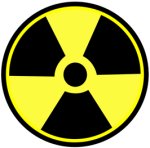The Swiss government announced last week a proposal to phase out nuclear power as an energy source for electricity generation and to look more towards energy efficiency and renewables.
Under the proposal, existing nuclear power stations will be decommissioned at the end of their operational lifespan and will not be replaced by new reactors. This would see Switzerland being nuclear free by 2034.
Currently, hydroelectric power makes up approximately 56% of Switzerland’s electricity production and nuclear power 39%. In terms of carbon dioxide emissions, Switzerland has very little output as conventional thermal sources such as coal fired generation and other facilities only account for around 5% of the nation’s electricity generation.
Under its Energy Strategy 2050 plan, hydropower and new renewable energy will be increased substantially. However, the Swiss government believes in order to meet demand, there may also be a need to expand fossil fuel-based electricity production; but the Federal Council will retain its climate policy objectives.
More renewable energy such as wind and solar power being introduced to the grid will require restructuring of its electricity infrastructure and turning transmission networks into smart grids will be “absolutely essential”. The Council says Switzerland’s grid should be integrated into the European grid and the future European ‘supergrid’.
The Swiss government’s proposal comes in the wake of the Fukushima nuclear disaster in Japan, with the Council saying “it feels that the people of Switzerland would like to see a reduction in the residual risk associated with the use of nuclear energy.”
The situation at Fukushima remains grave – on Saturday, a seawater pump in the cooling system for its No. 5 reactor broke down and backup pumps needed to be used. The facility is in also the path of a typhoon; causing concerns of delays to repairs, further damage to the affected reactors and rain washing more radioactive materials into the Pacific Ocean.
Greenpeace has reported radioactive contamination of the waters around Fukushima is spreading over a wide area and accumulating in sea life. Seaweed radioactivity levels are 50 times higher than safety limits and fish and shellfish sampled contained radioactivity levels above legal limits for food contamination.
Japan’s government is also moving away from nuclear energy and towards renewable sources – last week it announced plans to make solar power mandatory for all new buildings.












































